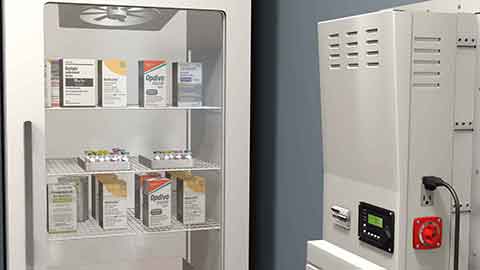TYPE 1 AND 3 EES POWER SOURCE CLASSIFICATIONS FOR AN ASC
NFPA 99 refers to NFPA 111 and 110 to define the classifications of alternative power sources and generators.
Type 1 and 2 essential electrical systems consist of a Type 10, Class X, Level 1 System per NFPA 110 The system for a Type 3 essential electrical system is classified as a Type 10, Class X, Level 2. The following is what these Levels, classes and types are:
Type:
The Standby Power System type refers to the maximum interruption time that is permitted in seconds. This case being a Type 10 the maximum permitted transfer time is 10 seconds.
Class:
The Class is a reference to the reserve time, which is the minimum time in hours that the alternative power source is designed to run based on its rated load without having to be refueled or recharged. For Class X there is not a run-time listed. The NFPA 111 and 110 states “Other time in hours as required by the application, code or user” so therefore in the case of an Ambulatory Surgery Center we interpret that it would be up to the practicing physicians how much time they would need to complete their case.
Often the accreditation underwriter would have their own codified minimum time required, which in most cases is 2 hours.
Level:
NFPA 110 and 111 list 2 levels one and two
Level 1 Systems are necessary where there would be a risk of loss of life or serious injury to the patient if the equipment were to fail.
Level 2 Systems shall be installed where a power failure would be less critical to human life and safety.
To find out if your ASC or office based surgery center is required to have type 1 system you may refer to our NFPA TYPE 1 ESSENTIAL ELECTRICAL SYSTEMS AND AMBULATORY SURGERY CENTERS page.
Learn More About Battery Backup Power
To answer even more of your questions and find additional solutions to problems that could affect your medical facility or laboratory, check out these other articles from the Medi-Products blog and the Medi-Products Learning Center:
Surgery Room Design and Emergency Backup Power
Gasoline Powered Generators vs Battery Powered Generators for Medical Facilities
Battery Backup Costs For Office-based and Ambulatory Surgery Centers


